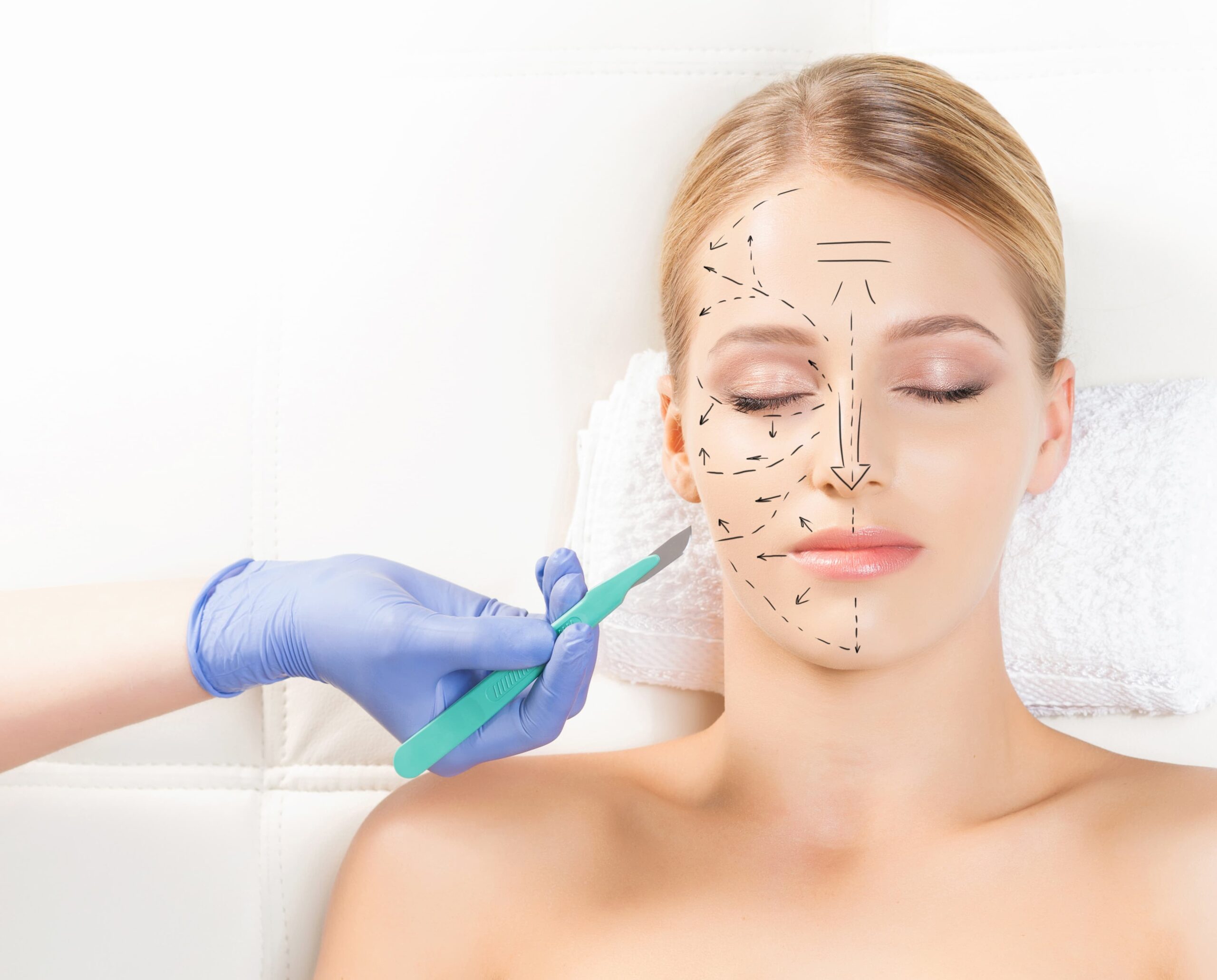Investigating the Mental and Social Elements That Drive Individuals to Take Into Consideration Plastic Surgery as a Means of Renovation
The decision to go after plastic surgery frequently prolongs beyond simple aesthetic appeals, linking with psychological and social dynamics that warrant complete evaluation. Variables such as self-esteem, pervasive social charm criteria, and the prevalent impact of social media sites merge to shape private inspirations for surgical improvement. As these influences come to be increasingly popular, understanding the underlying social and emotional contexts is essential. What remains to be discovered is the profound influence these aspects have not only on individual identification yet likewise on broader social norms and values surrounding beauty and approval.
The Function of Self-confidence
Self-worth dramatically affects an individual's choice to seek cosmetic surgical procedure. People with low self-esteem frequently perceive themselves in an unfavorable light, leading to feelings of insufficiency regarding their physical look.

Inevitably, the function of self-worth in the decision-making procedure concerning cosmetic surgery highlights the complex interplay between body image, personal fulfillment, and psychological health and wellness. Understanding this partnership is crucial for healthcare specialists to make sure that people are making educated choices rooted in practical expectations and emotional well-being.
Societal Appeal Standards
Influenced by pervasive media portrayals and social stories, social charm requirements play a crucial role fit people' perceptions of their very own bodies. These criteria are commonly defined by an idealized kind of appeal that emphasizes characteristics such as balance, youthfulness, and slimness. As these perfects are bolstered via different networks, including advertising and marketing, film, and television, people often internalize these messages, resulting in frustration with their natural appearance.
The ramifications of these social norms extend beyond aesthetic preferences; they can influence self-worth, psychological health, and social connections. Individuals who perceive themselves as disappointing these standards might experience feelings of insufficiency, motivating a need for plastic surgery as a way of achieving societal authorization. This pursuit is usually fueled by the belief that satisfying these perfects will improve not only physical look yet also social standing and individual gratification.

Influence of Social Network
The influence of social elegance standards is additional intensified by the rise of social networks systems, where curated pictures and idealized depictions of elegance are ubiquitous. Customers are continuously exposed to filteringed system and edited photos, which usually depict unattainable physical attributes. This direct exposure grows a culture of contrast, leading individuals to analyze their own appearance against these often unrealistic criteria.
Social network influencers and celebrities frequently promote aesthetic treatments, normalizing the idea that medical improvements are a click now viable methods for attaining societal ideals (plastic surgery rancho cucamonga). The exposure of these improvements can produce a perception that undertaking cosmetic surgery is a typical method, thereby influencing people to think about similar interventions as a pathway to enhanced self-worth and social approval
In addition, the interactive nature of social media sites enables for instant comments via sort and remarks, even more reinforcing the wish to satisfy preferred elegance requirements. Such communications can intensify sensations of inadequacy and drive individuals towards plastic surgery as a way of getting validation. Ultimately, social media plays a pivotal role in forming perceptions of charm, which considerably impacts the decision-making procedures bordering cosmetic surgical procedure.

Social Point Of Views on Look
Across different societies, assumptions of look are deeply rooted in historic, social, and financial contexts, forming individuals' sights on elegance and desirability. In lots of cultures, look offers as a substantial marker of identity, influencing social status, specialist possibilities, and personal connections. As an example, in some societies, light skin is commonly related to wide range and benefit, while others might idealize darker skin tones as icons of stamina and credibility.
Moreover, conventional charm standards are usually bolstered through cultural stories, media depictions, and family affects, causing differing suitables throughout different regions (plastic surgery rancho cucamonga). In Western societies, the emphasis on young people and fitness frequently drives people toward aesthetic improvement, while in certain Eastern societies, even more refined modifications straightened with standard visual appeals may be chosen
Globalization and the spreading of electronic media have further complicated these dynamics, creating a hybridization of elegance perfects that transcends geographical borders. As individuals progressively browse these social narratives, the pressure to comply with details appearance requirements can lead to the desire for cosmetic surgical procedure, reflecting a complicated interaction of individual ambitions and cultural values. Comprehending these social point of views is essential in dealing with the motivations behind plastic surgery considerations.
Psychological Impacts of Aesthetic Surgical Treatment
Many people seeking cosmetic surgery record experiencing extensive psychological influences that can considerably modify their self-perception and emotional well-being - plastic surgery rancho cucamonga. The need for physical enhancement typically stems from underlying issues such as low self-confidence, body dysmorphic problem, or societal pressures regarding charm requirements. For some, the prompt post-operative phase can lead to a temporary boost look at this web-site in positive self-image and complete satisfaction with their appearance, cultivating a sense of empowerment
However, these favorable sensations might not be enduring. Study shows that while some people experience boosted self-worth, others might encounter elevated anxiety or anxiety if their expectations are not satisfied. This discrepancy can arise from unrealistic suitables continued by media representation and cultural stories surrounding elegance.
In addition, the mental implications of plastic surgery expand beyond the person. Relationships with family members and pals might be strained as social dynamics change, resulting in you can try here sensations of seclusion or alienation. Ultimately, the mental influences of cosmetic surgical treatment are complicated and diverse, needing careful factor to consider by both prospective patients and doctor to make certain educated decision-making and realistic expectations.
Verdict
To conclude, the decision to seek cosmetic surgical procedure is substantially affected by a combination of self-worth concerns, social elegance criteria, and social point of views on look. The pervasive reach of social media additionally worsens these stress, promoting impractical perfects that people commonly aim to obtain. Understanding these social and psychological aspects is vital for addressing the motivations behind cosmetic surgical procedure, highlighting the demand for an extra nuanced conversation bordering beauty and self-acceptance in contemporary society.
The decision to go after cosmetic surgical procedure typically expands past plain aesthetics, linking with social and emotional dynamics that merit extensive assessment. Inevitably, social media plays an essential function in shaping understandings of beauty, which substantially influences the decision-making processes surrounding cosmetic surgical procedure.
As individuals progressively navigate these cultural stories, the stress to adjust to certain look standards can lead to the need for cosmetic surgical treatment, reflecting an intricate interplay of social worths and personal ambitions.In verdict, the choice to pursue cosmetic surgery is dramatically affected by a mix of self-confidence issues, societal appeal standards, and cultural point of views on look. Recognizing these social and mental elements is essential for attending to the inspirations behind cosmetic surgical treatment, highlighting the requirement for an extra nuanced conversation bordering charm and self-acceptance in contemporary society.